As part of the research project Reimagining the Global Music Ensemble, in 2022, we interviewed seven directors of university global music ensembles about ethics and the value of intercultural experiential learning. Here are the questions we asked. You can find the answers on our YouTube channel:
- In your view what value/contribution does your ensemble bring to your students, the program and larger institution?
- Recent global events such as the COVID-19 pandemic and Black Lives Matter movement have accelerated the conversation around the need for social change and the decolonization of music education studies. What impact (if any) have these societal shifts had on your teaching/performance of global musics?
- In your particular setting, can you describe any issues/problems around representation/colonization that you would like to see addressed? This could relate to leadership, membership, or any aspect of your situation.
- Are there any tools or strategies you are currently using to promote diversity, anti-racism or decoloniality within your ensembles or pedagogy?
- What approaches would you like to see in promoting ethical practices in global ensembles? What kind of a role (if any) do you think you can play or would like to play?
Host:
Stacey Dela Can-Tamakloe is a student in the MA in Music and Culture at Carleton University (2021-2023), where she is researching gender and colonialism in the pedagogy of Ghanaian traditional music and dance post-secondary studies. She holds a BFA from the University of Ghana where she focused on music and dance studies. During her time at Carleton, Stacey has been coaching Carleton’s West African Rhythm Ensemble in both popular and traditional dance styles. Stacey is a graduate research assistant for the “Reimagining the Global Music Ensemble” project, and the host for these interviews.
Participants:
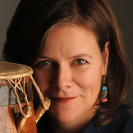 Kathy Armstrong is a percussionist and educator whose work spans community and academic settings. She is a Faculty Instructor at Carleton University in the Music program and is cross appointed to the Institute for African Studies. She teaches global studies courses and directs the West African Rhythm Ensemble. Kathyreceived her BMus and MMus from the University of Toronto, and an MA in Music and Culture from Carleton University. Her 1990 studies in Ghana with Kwasi Dunyo developed into many years of artistic collaboration and educational projects. Kathy founded Ottawa’s Baobab Drum Dance Community (1995-2020), an early leader in intercultural arts education.
Kathy Armstrong is a percussionist and educator whose work spans community and academic settings. She is a Faculty Instructor at Carleton University in the Music program and is cross appointed to the Institute for African Studies. She teaches global studies courses and directs the West African Rhythm Ensemble. Kathyreceived her BMus and MMus from the University of Toronto, and an MA in Music and Culture from Carleton University. Her 1990 studies in Ghana with Kwasi Dunyo developed into many years of artistic collaboration and educational projects. Kathy founded Ottawa’s Baobab Drum Dance Community (1995-2020), an early leader in intercultural arts education.
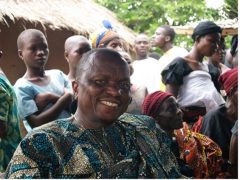 Kwasi Dunyo was born at the Ewe village of Dagbamete, in the Volta Region of Ghana. He was the lead drummer for Sankofa Dance Theatre from 1977 to 1981, under the tutelage of Godwin Agbeli. In 1992, Kwasi Dunyo was the recipient of a Visiting Foreign Artist grant from the Canadian government establishing his North American career. Kwasi teaches at York University, University of Toronto, Royal Conservatory of Music and the Toronto District School Board. He has also performed and given workshops at many Canadian and American universities. Kwasi founded the West African Cultural Exchange, which regularly hosts students for cultural studies in Ghana.
Kwasi Dunyo was born at the Ewe village of Dagbamete, in the Volta Region of Ghana. He was the lead drummer for Sankofa Dance Theatre from 1977 to 1981, under the tutelage of Godwin Agbeli. In 1992, Kwasi Dunyo was the recipient of a Visiting Foreign Artist grant from the Canadian government establishing his North American career. Kwasi teaches at York University, University of Toronto, Royal Conservatory of Music and the Toronto District School Board. He has also performed and given workshops at many Canadian and American universities. Kwasi founded the West African Cultural Exchange, which regularly hosts students for cultural studies in Ghana.
 Karen Howard is Associate Professor of Music at the University of St. Thomas in Minnesota in the U.S. She teaches courses related to matters of diversity, music education, and research. Karen is the author of several research articles and books related to the diversification of music education including Realizing Diversity: An Equity Framework for Music Education. Karen is a facilitator for the Smithsonian Folkways Certificate Course in World Music Pedagogy and has created several unique courses to support musicians on their journeys to learn a broader repertoire of music and culture.
Karen Howard is Associate Professor of Music at the University of St. Thomas in Minnesota in the U.S. She teaches courses related to matters of diversity, music education, and research. Karen is the author of several research articles and books related to the diversification of music education including Realizing Diversity: An Equity Framework for Music Education. Karen is a facilitator for the Smithsonian Folkways Certificate Course in World Music Pedagogy and has created several unique courses to support musicians on their journeys to learn a broader repertoire of music and culture.
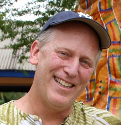 Robert Levin is a composer, performer, and educator specializing in traditional West African music. Robert studied West African music with Professors Adzenyah and Donkor at Wesleyan University and has a Masters in Composition from Yale University. Spending much time in Ghana, Levin founded a public school in Kopeyia with Godwin Agbeli in 1988. Robert brings traditional West African music to students at countless schools. Robert records/performs on keyboards/percussion, including on Broadway in The Lion King. Composing credits: feature film Inside, documentaries, television, Broadway. He teaches composition at Hofstra University.
Robert Levin is a composer, performer, and educator specializing in traditional West African music. Robert studied West African music with Professors Adzenyah and Donkor at Wesleyan University and has a Masters in Composition from Yale University. Spending much time in Ghana, Levin founded a public school in Kopeyia with Godwin Agbeli in 1988. Robert brings traditional West African music to students at countless schools. Robert records/performs on keyboards/percussion, including on Broadway in The Lion King. Composing credits: feature film Inside, documentaries, television, Broadway. He teaches composition at Hofstra University.
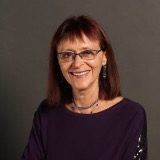 Irene Markoff is an ethnomusicologist who teaches studies courses and directs a Balkan Music ensemble at York University in Toronto where she also contributes to the Graduate Programs in Music, Anthropology, and Interdisciplinary Studies. Her research and publications center on Bulgarian and Turkish traditional and popular music in addition to aspects of Alevi-Bektashi expressive culture in Turkey, Bulgaria, and Canada. A consulting editor for the Middle East volume of The Garland Encyclopedia of World Music, her chapter in Music, Sound and Architecture in Islam (2018) addresses the articulation of otherness in the construction of Alevi-Bektashi rituals and ritual space.
Irene Markoff is an ethnomusicologist who teaches studies courses and directs a Balkan Music ensemble at York University in Toronto where she also contributes to the Graduate Programs in Music, Anthropology, and Interdisciplinary Studies. Her research and publications center on Bulgarian and Turkish traditional and popular music in addition to aspects of Alevi-Bektashi expressive culture in Turkey, Bulgaria, and Canada. A consulting editor for the Middle East volume of The Garland Encyclopedia of World Music, her chapter in Music, Sound and Architecture in Islam (2018) addresses the articulation of otherness in the construction of Alevi-Bektashi rituals and ritual space.
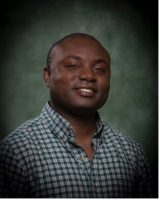 Dr. Samuel Elikem Nyamuame is a native of Ghana and teaches Ethnomusicology and Dance at Binghamton University in New York. He received his Ph.D at the University of Florida, his MA at Wesleyan University, and a BFA in Music and Dance at the University of Ghana, Accra-Legon, Ghana. In addition to performing, Dr. Nyamuame’s research areas include traditional rituals and the role of drum text and its effects on performers. He received the prestigious Carnegie African Diaspora Fellowship, and the Harpur College Teaching Award at Binghamton University. Dr. Nyamuame teaches African Dance, Music, Identity and Social Movements and African Drumming. He is the artistic director for Nukporfe African Drum and Dance Ensemble the Dzidefo Africa choir at Binghamton.
Dr. Samuel Elikem Nyamuame is a native of Ghana and teaches Ethnomusicology and Dance at Binghamton University in New York. He received his Ph.D at the University of Florida, his MA at Wesleyan University, and a BFA in Music and Dance at the University of Ghana, Accra-Legon, Ghana. In addition to performing, Dr. Nyamuame’s research areas include traditional rituals and the role of drum text and its effects on performers. He received the prestigious Carnegie African Diaspora Fellowship, and the Harpur College Teaching Award at Binghamton University. Dr. Nyamuame teaches African Dance, Music, Identity and Social Movements and African Drumming. He is the artistic director for Nukporfe African Drum and Dance Ensemble the Dzidefo Africa choir at Binghamton.
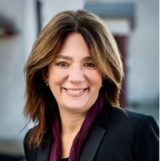 Marissa Silverman is Professor at the John J. Cali School of Music, Montclair State University, NJ. A Fulbright Scholar, her research agenda focuses on dimensions of music philosophy, artistic interpretation, community music, and interdisciplinary curriculum development. She is author of Gregory Haimovsky: A Pianist’s Odyssey to Freedom and co-author of the 2nd edition of Music Matters: A Philosophy of Music Education. She is co-editor of Eudaimonia: Perspectives for Music Teaching and Learning, The Oxford Handbook of Philosophical and Qualitative Assessment in Music Education, Artistic Citizenship: Artistry, Social Responsibility, and Ethical Praxis, and Community Music Today.
Marissa Silverman is Professor at the John J. Cali School of Music, Montclair State University, NJ. A Fulbright Scholar, her research agenda focuses on dimensions of music philosophy, artistic interpretation, community music, and interdisciplinary curriculum development. She is author of Gregory Haimovsky: A Pianist’s Odyssey to Freedom and co-author of the 2nd edition of Music Matters: A Philosophy of Music Education. She is co-editor of Eudaimonia: Perspectives for Music Teaching and Learning, The Oxford Handbook of Philosophical and Qualitative Assessment in Music Education, Artistic Citizenship: Artistry, Social Responsibility, and Ethical Praxis, and Community Music Today.
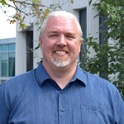 Dr. Michael B. Vercelli is the Director of Graduate Studies in Music at West Virginia University. His research focuses on the transmission and performance practice of percussive traditions of Africa and African Diaspora. Michael has received awards for his performance and study of indigenous music and has released recordings with master Ghanaian gyil players Bernard Woma and Tijan Dorwana. He has given lectures, performances, and workshops across the United States, Mexico, Brazil, China, and Europe and is a participating member in the Percussive Arts Society, the Society for Ethnomusicology, and the International Council for Traditional Music.
Dr. Michael B. Vercelli is the Director of Graduate Studies in Music at West Virginia University. His research focuses on the transmission and performance practice of percussive traditions of Africa and African Diaspora. Michael has received awards for his performance and study of indigenous music and has released recordings with master Ghanaian gyil players Bernard Woma and Tijan Dorwana. He has given lectures, performances, and workshops across the United States, Mexico, Brazil, China, and Europe and is a participating member in the Percussive Arts Society, the Society for Ethnomusicology, and the International Council for Traditional Music.